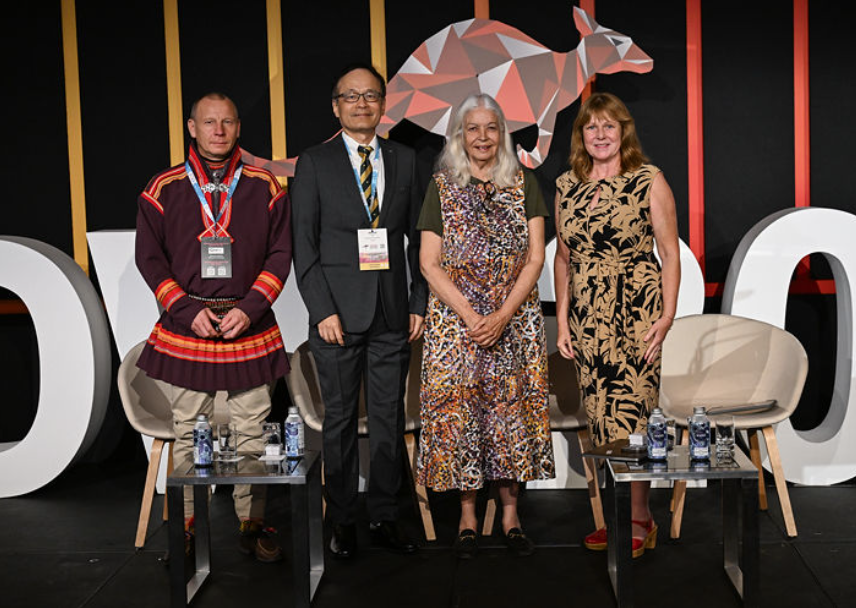 Blog Post by Gitanjali Yadav, India
Blog Post by Gitanjali Yadav, India
The opening plenary on CAREful Indigenous Data Governance at the International Data Week 2025 in Brisbane promised to be one of the most important conversations of the week long biennial data conference, and it delivered! The session opened with a respectful acknowledgement of the Traditional Custodians of the land on which we met; the Thurrbal and Yaagera peoples. For me, on my first visit to the southern hemisphere, this was a particularly heartwarming moment as Prof. Tony Heymet, the Australian chief scientist and Dr. Margaret Sheil, Vice Chancellor of the Queensland University of Technology paid respects to Elders past and present, all Aboriginal and Islander peoples, honouring their enduring connection to knowledge, and to storytelling, the world’s oldest continuous data system, recognising how their wisdom continues to guide how we gather, share, and care for knowledge.
This opening plenary brought together global efforts to empower indigenous communities based on CARE foundational principles. For me, this session resonated very well with my own continuing reflections on “Who owns our knowledge?”, the theme of this year’s global ‘Open Access Week’, not only as a call to action but also as an inspiration for important conversations and collaborations around the globe. The answer can be found in the systems we build, the policies we uphold, and the communities we empower. Chaired with characteristic grace by Rosie Hicks, the session brought together three very distinct voices: Marcia Langton (Australia), Niklas Lábba (Sápmi, Sweden), and Alfred J. P. Lin (Taiwan) , each addressing how data, culture, and governance intersect in profoundly different ways. It was, in many ways, a masterclass in contrast!
When Alfred J. P. Lin opened his talk with a background on Taiwan’s Indigenous Peoples (TIP), expectations were high. His talk, “How Scientific Computing, Data Science, and Open Science Revitalize and Empower Hard-to-Reach Populations” promised a 20-year perspective on digital empowerment. Yet to me, his presentation felt curiously detached from the communities it claimed to serve. The TIP data science framework was impressive in scope but seemed to prioritize system architecture over sovereignty. My concern is that even as we strive to foster self-determination, promote equitable partnerships, and address historical injustices, can scientific computing and open data ever truly empower Indigenous communities, or are we merely empowering institutions that have the infrastructure to process and publish those data? When I asked who owns the Indigenous knowledge generated in his projects; his research institute? the Taiwanese government? Or was it owned by the TIPs themselves, there was no clear answer. It was an unsettling moment. The question went to the heart of the session’s theme: CAREful governance requires clarity of authority and accountability. Without that, “empowerment” risks becoming just another research deliverable.
Read more on the CODATA blog https://codata.org/blog/2025/10/28/when-care-meets-reality-reflections-on-indigenous-data-governance-at-idw-2025/
